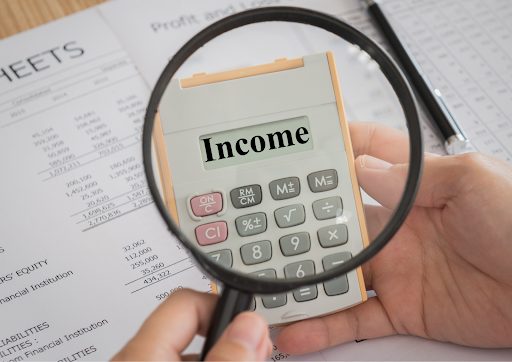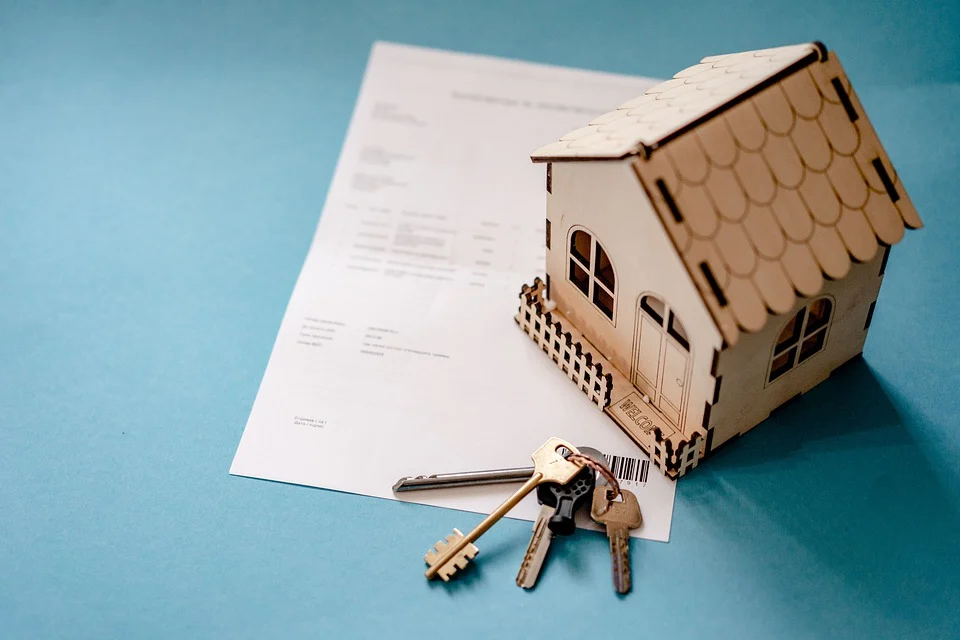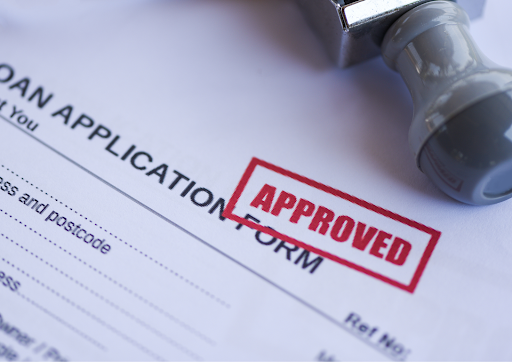Last updated: July 10, 2023
proborrower, LLC
Terms and Conditions
These Terms and Conditions (“Terms and Conditions”) constitute a legally binding agreement made between you (“user” or “you”) and proborrower, LLC (“proborrower”), concerning your access to and use of the proborrower website www.proborrower.com as well as any other media form, media channel, mobile website or mobile application related, linked, or otherwise connected thereto (collectively, the “Site”).
You agree that by accessing the Site, you have read, understood, and agree to be bound by all of these Terms and Conditions. If you do not agree with all of these Terms and Conditions, then you are expressly prohibited from using the Site and you must discontinue use immediately. You acknowledge and agree that, by registering for a proborrower account, using the application on your computer or mobile device, accessing or using the proborrower service, or by downloading, submitting or posting any files from, or on, or through the proborrower service, you are indicating that you have read, understand and agree to be bound by these Terms and Conditions. If you do not agree to these Terms and Conditions, then you have no right to access or use the proborrower service or Site content.
Supplemental terms and conditions or documents that may be posted on the Site from time to time are hereby expressly incorporated herein by reference. proborrower reserves the right, in its sole discretion, to make changes or modifications to these Terms and Conditions at any time and for any reason.
The information provided on the Site is not intended for distribution to or use by any person or entity in any jurisdiction or country where such distribution or use would be contrary to law or regulation or which would subject proborrower to any registration requirement within such jurisdiction or country. Accordingly, those persons who choose to access the Site from other locations do so on their own initiative and are solely responsible for compliance with local laws, if and to the extent local laws are applicable.
proborrower reserves the right, at its sole discretion, to change or modify portions of these Terms and Conditions at any time. proborrower will alert you about any changes by updating the “Last Updated” date of these Terms and Conditions, and you waive any right to receive specific notice of each such change. It is your responsibility to periodically review these Terms and Conditions to stay informed of updates. Your continued use of the Site after the date any such changes become effective constitutes your acceptance of the new Terms and Conditions.
Site Services
The Site offers a platform designed to facilitate the document assembly and communication between borrowers and lenders through the mortgage process. Borrowers will upload digital copies of personal documents as well as any additional documentation requested by your lender to the Site. Your lender may authorize the Site to provide certain information relating to the status of your loan.
proborrower is an administrative platform and does not offer or provide loans directly. You acknowledge and agree that proborrower is not a party to any transactions or agreements entered into between borrowers and lenders. If you enter into a loan transaction using the Site, you are contracting directly with the lender. The agreements governing the terms and conditions of any loan transaction consummated between a borrower and a lender are separate from the Site.
proborrower is not a broker, agent or insurer, and has no control over the conduct of, or any pricing or other information provided by a borrower or a lender, and proborrower hereby disclaims all liability in this regard. proborrower does not (a) guarantee or ensure any loan amount, transaction fees, offer or availability between a you and a lender, (b) collect or process payment or transfer of title or security liens on behalf of you or your lenders=, or otherwise act as an agent for any party to a loan or real estate transaction. proborrower does not and cannot guarantee the loan products offered by lenders.
proborrower assumes no responsibility to verify whether any information provided by lenders comply with applicable laws; such responsibility rests with the lenders. proborrower does not control how any lenders use your User Content. You acknowledge that proborrower is merely acting as an administrative platform and any dealings that you may have with a lender is governed by the terms of the agreement that you enter into with that lender. You acknowledge that it is your lender’s responsibility, not proborrower’s, to comply with applicable laws related to mortgage lending. You must make the final determination as to the value and appropriateness of the loan transaction. proborrower expressly disclaims any liability or responsibility for the outcome of any transaction you have with your lender.
Borrower Registration
Users are required to register with proborrower in order to access and use the Site. If you choose to register for the Site, you agree to provide and maintain true, accurate, current and complete information about yourself as prompted by the Site registration form and agree to be bound by the Terms and Conditions. Registration data and certain other information about you are governed by our Privacy Policy www.proborrower.com.
You agree to keep your password confidential and will be responsible for all use of your account and password. proborrower reserves the right to remove, reclaim, or change a username you select if proborrower determines, in its sole discretion, that such username is inappropriate, obscene, or otherwise objectionable. You are responsible for all activity occurring under your User ID. proborrower will not be liable for any loss or damage arising from your failure to comply.
By using the Site, you represent and warrant that you are at least 18 years old, you will not use the Site for any illegal or unauthorized purpose, your use of the Site will not violate any applicable law or regulation. you will not access the Site through automated or non-human means, whether through a bot, script, or otherwise, and that all registration information you submit is true, accurate, current, and complete.
User Content
With respect to the content or other materials you upload to the Site or share with other users or recipients (“User Content”), you represent and warrant that you own all right, title and interest in and to such User Content, including, without limitation, all copyrights and rights of publicity contained therein. By uploading any User Content, you hereby grant and will grant proborrower and its affiliated companies a nonexclusive, worldwide, royalty free, fully paid up, transferable, sublicensable, perpetual, irrevocable license to copy, display, upload, perform, distribute, store, modify and otherwise use your User Content in connection in any form.
By uploading any User Content, you are authorizing authorize proborrower to share your User Content, including your full name, address, email address, phone number, with your lender to initiate the loan process. You agree to notify any lender directly if you no longer want to receive communications from them.
You have the right at any time to modify or delete your User Content from the Site. It is your responsibility to modify your User Content if and when such User Content is no longer current and/or has inaccurate information.
The Site is not intended as a backup or storage system. You agree to maintain backup copies of all of your User Content on the Site. proborrower shall have no responsibility or liability for the deletion of or the failure to store any of your User Content on the Site.
Prohibited Activities
You are solely responsible for all User Content, including, but not limited to, all documents, images, information, data, text, messages or other materials that you upload, transmit or otherwise use via the Site.
You may not access or use the Site for any purpose other than that for which proborrower makes the Site available. As a user of the Site, you agree not to:
- make improper use of proborrower’s services or submit false reports of abuse or misconduct;
- engage in any automated use of the system, such as using scripts to send comments or messages, or using any data mining, robots, or similar data gathering and extraction tools;
- interfere with, disrupt, or create an undue burden on the Site or the networks or services connected to the Site;
- attempt to impersonate another user or person or use the username of another user;
- sell or otherwise transfer your profile;
- use any information obtained from the Site in order to harass, abuse, or harm another person;
- attempt to bypass any measures of the Site designed to prevent or restrict access to the Site, or any portion of the Site;
- harass, annoy, intimidate, or threaten any of proborrower’s employees or agents engaged in providing any portion of the Site to you;
- delete the copyright or other proprietary rights notice from any Site content;
- upload or transmit (or attempt to upload or to transmit) viruses, Trojan horses, or other material, including excessive use of capital letters and spamming, that interferes with any user’s uninterrupted use of the Site or modifies, impairs, disrupts, alters, or interferes with the use, features, functions, operation, or maintenance of the Site;
- except as may be the result of standard search engine or Internet browser usage, use, launch, develop, or distribute any automated system, including without limitation, any spider, robot, cheat utility, scraper, or offline reader that accesses the Site, or using or launching any unauthorized script or other software;
- disparage, tarnish, or otherwise harm, in proborrower’s opinion, proborrower and/or the Site; and/or
- use the Site in a manner inconsistent with any applicable laws or regulations.
Mobile Application
If you access the Site via a mobile application, proborrower grants you a revocable, non-exclusive, non-transferable, limited right to install and use the mobile application on wireless electronic devices owned or controlled by you, and to access and use the mobile application on such devices strictly in accordance with these Terms and Conditions and with the usage rules set forth in the applicable app distributor’s terms of service. To the extent you access the Site through a mobile device, your wireless service carrier’s standard charges, data rates and other fees may apply.
By using the Site via a mobile application downloaded from either the Apple Store, Google Play or other app distributer, for your Apple or Android device, you agree not to:
- decompile, reverse engineer, disassemble, attempt to derive the source code of, or decrypt the application;
- make any modification, adaptation, improvement, enhancement, translation, or derivative work from the application;
- violate any applicable laws, rules, or regulations in connection with your access or use of the application;
- remove, alter, or obscure any proprietary notice (including any notice of copyright or trademark) posted by us;
- use the application for creating a product, service, or software that is, directly or indirectly, competitive with or in any way a substitute for the application; and/or
- use any proprietary information or any of proborrower’s interfaces or its other intellectual property in the design, development, manufacture, licensing, or distribution of any applications, accessories, or devices for use with the application.
Feedback
You acknowledge and agree that any questions, comments, suggestions, ideas, feedback, or other information regarding the Site provided by you to proborrower are non-confidential and shall become proborrower’s sole property. You hereby agree that proborrower shall own exclusive rights, including all intellectual property rights, and shall be entitled to the unrestricted use and dissemination of this feedback for any lawful purpose, commercial or otherwise, without acknowledgment or compensation to you.
Third Party Content
The Site may contain links to other websites as well as articles, photographs, text, graphics, pictures, designs, music, sound, video, information, applications, software, and other content or items belonging to or originating from third parties ("Third-Party Content").
Such Third-Party Content is not investigated, monitored, or checked for accuracy, appropriateness, or completeness by us, and proborrower is not responsible for any third-party websites accessed through the Site or any Third-Party Content posted on or accessed through the Site. Inclusion of, linking to, or permitting the use or installation of any third-party websites or any Third-Party Content does not imply approval or endorsement thereof by proborrower.
Under no circumstances will proborrower be liable in any way for any content or materials of any third party, including, but not limited to, for any errors or omissions in any content, or for any loss or damage of any kind incurred as a result of the use of any such content. You acknowledge that proborrower does not pre-screen content, but that proborrower has the right, but not the obligation, to refuse or remove any content that is available on the Site. Without limiting the foregoing, proborrower has the right to remove any content that violates these Terms ad Conditions. You agree that you must evaluate, and bear all risks associated with, the use of any content, including any reliance on the accuracy, completeness, or usefulness of such Third-Party Content.
Site Management
proborrower reserves the right to:
- monitor the Site for violations of these Terms and Conditions;
- take appropriate legal action against anyone who, in proborrower’s sole discretion, violates the law or these Terms and Conditions, including without limitation, reporting such user to law enforcement authorities;
- refuse, restrict access to, limit the availability of, or disable (to the extent technologically feasible) Site access to any user, without limitation;
- remove from the Site or otherwise disable all files and content that are excessive in size or are in any way burdensome to proborrower’s systems without limitation, notice, or liability; and/or
- otherwise manage the Site in a manner designed to protect proborrower’s rights and property and to facilitate the proper functioning of the Site.
Privacy Policy
Please review proborrower’s Privacy Policy www.proborrower.com. By using the Site, you agree to be bound by the Privacy Policy, which is incorporated into these Terms and Conditions.
Please be advised the Site is hosted in the United States. If you access the Site from the European Union, Asia, or any other region of the world with laws or other requirements governing personal data collection, use, or disclosure that differ from applicable laws in the United States, then through your continued use of the Site, you are transferring your data to the United States, and you expressly consent to have your data transferred to and processed in the United States.
Further, proborrower does not knowingly accept, request, or solicit information from children or knowingly market to children. Therefore, in accordance with the U.S. Children’s Online Privacy Protection Act, if proborrower receives actual knowledge that anyone under the age of 13 has provided personal information on the Site without the requisite and verifiable parental consent, any such information will be deleted from the Site as quickly as is reasonably practical.
Copyright
You acknowledge and agree that the Site may contain content or features that are protected by copyright, patent, trademark, trade secret or other proprietary rights and laws. In connection with your use of the Site you will not engage in or use any data mining, robots, scraping or similar data gathering or extraction methods. If you are blocked by proborrower from accessing the Site, you agree not to implement any measures to circumvent such blocking (e.g., by masking your IP address or using a proxy IP address). Any use of the Site other than as specifically authorized herein is strictly prohibited. The technology and software of the Site, or used in connection with, are the property of proborrower, its affiliates and its partners.
The proborrower name and logos are trademarks and service marks of proborrower. Other company, product, and service names and logos used and displayed on the Site may be trademarks or service marks of their respective owners who may or may not endorse or be affiliated with or connected to proborrower. Nothing in these Terms and Condition or the Site should be construed as granting, by implication, estoppel, or otherwise, any license or right to use any of proborrower logos or trademarks, without our prior written permission in each instance. All goodwill generated from the use of proborrower’s name and logos will inure to proborrower’s exclusive benefit.
proborrower respects the intellectual property rights of others. If you believe that any material available on or through the Site infringes upon any copyright you own or control, please immediately notify proborrower using the contact information provided below. Please be advised that pursuant to federal law you may be held liable for damages if you make material misrepresentations in any such notice to proborrower. Thus, if you are not sure that material located on or linked to by the Site infringes your copyright, you should consider first contacting an attorney.
Termination
These Terms and Conditions shall remain in full force and effect while you use the Site. Without limiting any other provision of these Terms and Conditions, proborrower reserves the right to, in its sole discretion and without notice or liability, deny access to and use of the site (including blocking certain IP addresses), to any person for any reason or for no reason, including without limitation for breach of any representation, warranty, or covenant contained in these terms and conditions or of any applicable law or regulation. proborrower may terminate your use or participation in the site or delete, your account, and/or any content or information that you posted at any time, without warning.
If proborrower terminates or suspends your account for any reason, you are prohibited from registering and creating a new account under your name, a fake or borrowed name, or the name of any third party, even if you may be acting on behalf of the third party.
In addition to terminating or suspending your account, proborrower reserves the right to take appropriate legal action, including without limitation pursuing civil, criminal, and injunctive redress.
Modifications & Interruptions
proborrower reserves the right to change, modify, or remove the contents of the Site at any time or for any reason at its sole discretion without notice. Further, proborrower reserves the right to modify or discontinue all or part of the Site without notice at any time. proborrower reserve the right to changes, revise, update, suspend, discontinue, or otherwise modify the Site at any time or for any reason without notice to you. proborrower has no obligation to update any information on the Site.
proborrower will not be liable to you or any third party for any modification, price change, suspension, or discontinuance of the Site. proborrower cannot guarantee the Site will be available at all times. The Site may experience hardware, software, or other problems or need maintenance, resulting in interruptions, delays, or errors. You agree that proborrower has no liability whatsoever for any loss, damage, or inconvenience caused by your inability to access or use the Site during any downtime or discontinuance of the Site.
There may be information on the Site that contains typographical errors, inaccuracies, or omissions that may relate to the Site, including descriptions, pricing, availability, and various other information. proborrower reserves the right to correct any errors, inaccuracies, or omissions and to change or update the information on the Site at any time, without prior notice.
Nothing in these Terms and Conditions will be construed to obligate proborrower to maintain and support the Site or to supply any corrections, updates, or releases in connection therewith.
Governing Law
These Terms and Conditions and your use of the Site are governed by the laws of the Commonwealth of Massachusetts and shall be construed and enforced in accordance with the laws of the Commonwealth of Massachusetts.
Disputes
The Parties agree that, in the event of any dispute arising out of, or in connection with, these Terms and Conditions, each Party will in good faith work to reach an amicable and prompt resolution of the dispute. Failing amicable resolution, any such dispute shall be settled by arbitration in Massachusetts in accord with Commercial Arbitration Rules of the American Arbitration Association before a single arbitrator who shall have experience in the area of the matter in dispute. The decision of the Arbitrator shall be final, conclusive and binding on the Parties, the costs of which shall be split between the Parties, excluding independent attorneys’ fees. YOU UNDERSTAND THAT WITHOUT THIS PROVISION, YOU WOULD HAVE THE RIGHT TO SUE IN COURT AND HAVE A JURY TRIAL.
If for any reason, a dispute proceeds in court rather than arbitration, the Dispute shall be commenced or prosecuted in the state and federal courts located in Essex County, Massachusetts, and the Parties hereby consent to, and waive all defenses of lack of personal jurisdiction, and forum non conveniens with respect to venue and jurisdiction in such state and federal courts. If this provision is found to be illegal or unenforceable, then neither Party will elect to arbitrate any dispute falling within that portion of this provision found to be illegal or unenforceable and such dispute shall be decided by a court of competent jurisdiction within the courts listed for jurisdiction above, and the Parties agree to submit to the personal jurisdiction of that court.
Disclaimer
THE SITE IS PROVIDED ON AN AS-IS AND AS-AVAILABLE BASIS. YOU AGREE THAT YOUR USE OF THE SITE WILL BE AT YOUR SOLE RISK. TO THE FULLEST EXTENT PERMITTED BY LAW, pROBORROWER DISCLAIMS ALL WARRANTIES, EXPRESS OR IMPLIED, IN CONNECTION WITH THE SITE AND YOUR USE THEREOF, INCLUDING, WITHOUT LIMITATION, THE IMPLIED WARRANTIES OF MERCHANTABILITY, FITNESS FOR A PARTICULAR PURPOSE, AND NON-INFRINGEMENT.
pROBORROWER MAKES NO WARRANTIES OR REPRESENTATIONS ABOUT THE ACCURACY OR COMPLETENESS OF THE SITE’S CONTENT OR THE CONTENT OF ANY WEBSITES LINKED TO THE SITE AND WILL ASSUME NO LIABILITY OR RESPONSIBILITY FOR ANY (1) ERRORS, MISTAKES, OR INACCURACIES OF CONTENT AND MATERIALS, (2) PERSONAL INJURY OR PROPERTY DAMAGE, OF ANY NATURE WHATSOEVER, RESULTING FROM YOUR ACCESS TO AND USE OF THE SITE, (3) ANY UNAUTHORIZED ACCESS TO OR USE OF pROBORROWER’S SECURE SERVERS AND/OR ANY AND ALL PERSONAL INFORMATION AND/OR FINANCIAL INFORMATION STORED THEREIN, (4) ANY INTERRUPTION OR CESSATION OF TRANSMISSION TO OR FROM THE SITE, (5) ANY BUGS, VIRUSES, TROJAN HORSES, OR THE LIKE WHICH MAY BE TRANSMITTED TO OR THROUGH THE SITE BY ANY THIRD PARTY, AND/OR (6) ANY ERRORS OR OMISSIONS IN ANY CONTENT AND MATERIALS OR FOR ANY LOSS OR DAMAGE OF ANY KIND INCURRED AS A RESULT OF THE USE OF ANY CONTENT POSTED, TRANSMITTED, OR OTHERWISE MADE AVAILABLE VIA THE SITE. PROBORROW DOES NOT WARRANT, ENDORSE, GUARANTEE, OR ASSUME RESPONSIBILITY FOR ANY PRODUCT OR SERVICE ADVERTISED OR OFFERED BY A THIRD PARTY THROUGH THE SITE, ANY HYPERLINKED WEBSITE, OR ANY WEBSITE OR MOBILE APPLICATION FEATURED IN ANY BANNER OR OTHER ADVERTISING, AND pROBORROWER WILL NOT BE A PARTY TO OR IN ANY WAY BE RESPONSIBLE FOR MONITORING ANY TRANSACTION BETWEEN YOU AND ANY LENDER.
Limitations of Liability
IN NO EVENT WILL pROBORROWER, IT’S AGENTS, DIRECTORS, EMPLOYEES, OR MANAGER’S BE LIABLE TO YOU OR ANY THIRD PARTY FOR ANY DIRECT, INDIRECT, CONSEQUENTIAL, EXEMPLARY, INCIDENTAL, SPECIAL, OR PUNITIVE DAMAGES, INCLUDING LOST PROFIT, LOST REVENUE, LOSS OF DATA, OR OTHER DAMAGES ARISING FROM YOUR USE OF THE SITE, EVEN IF pROBORROWER HAS BEEN ADVISED OF THE POSSIBILITY OF SUCH DAMAGES.
IF YOU ARE DISSATISFIED WITH ANY PORTION OF THE SERVICE OR WITH THESE TERMS AND CONDITIONS, YOUR SOLE AND EXCLUSIVE REMEDY IS TO DISCONTINUE USE OF THE SERVICE.
Indemnification
You agree to defend, indemnify, and hold proborrower harmless, including its subsidiaries, affiliates, and all of its respective officers, agents, partners, and employees, from and against any loss, damage, liability, claim, or demand, including reasonable attorneys’ fees and expenses, made by any third party due to or arising out of: (1) your use of the Site; (2) breach of these Terms and Conditions; (3) any breach of your representations and warranties set forth in these Terms and Conditions; (4) your violation of the rights of a third party, including but not limited to intellectual property rights; or (5) any overt harmful act toward any other user of the Site with whom you connected via the Site.
Notwithstanding the foregoing, proborrower reserves the right, at your expense, to assume the exclusive defense and control of any matter for which you are required to indemnify proborrower, and you agree to cooperate, at your expense, with proborrower’s defense of such claims. proborrower will use reasonable efforts to notify you of any such claim, action, or proceeding which is subject to this indemnification upon becoming aware of it.
User Data
proborrower will maintain certain data that you transmit to the Site as well as data relating to your use of the Site for the purpose of managing the Site. Although proborrower performs regular routine backups of data, you are solely responsible for all data that you transmit or that relates to any activity you have undertaken using the Site.
You agree and acknowledge that proborrower shall have no liability to you for any loss or corruption of any such data, and you hereby waive any right of action against proborrower arising from any such loss or corruption of such data.
Electronic Communications
Visiting the Site, sending proborrower emails, and completing online forms constitute electronic communications. You consent to receive electronic communications, and you agree that all agreements, notices, disclosures, and other communications proborrower provides to you electronically, via email and on the Site, satisfy any legal requirement that such communication be in writing.
You hereby agree to the use of electronic signatures, contracts, orders, and other records, and to electronic delivery of notices, policies, and records of transactions initiated or completed by proborrower or via the site.
You hereby waive any rights or requirements under any statutes, regulations, rules, ordinances, or other laws in any jurisdiction which require an original signature or delivery or retention of non-electronic records, or to payments or the granting of credits by any means other than electronic means.
Miscellaneous
These Terms and Conditions and any policies or operating rules posted by proborrower on the Site constitute the entire agreement and understanding between you and proborrower. proborrower’s failure to exercise or enforce any right or provision of these Terms and Conditions shall not operate as a waiver of such right or provision.
These Terms and Conditions operate to the fullest extent permissible by law. proborrower may assign any or all of its rights and obligations to others at any time. proborrower shall not be responsible or liable for any loss, damage, delay, or failure to act caused by any cause beyond its reasonable control.
If any provision or part of a provision of these Terms and Conditions is determined to be unlawful, void, or unenforceable, that provision or part of the provision is deemed severable from these Terms and Conditions and does not affect the validity and enforceability of any remaining provisions.
CONTACT US
To receive further information regarding use of the Site, or if you have any questions regarding these Terms and Conditions, please contact proborrower at contact@proborrower.com.

 Mortgage Lenders
Mortgage Lenders
 Share
Share
 Facebook
Facebook Twitter
Twitter LinkedIn
LinkedIn Email
Email













